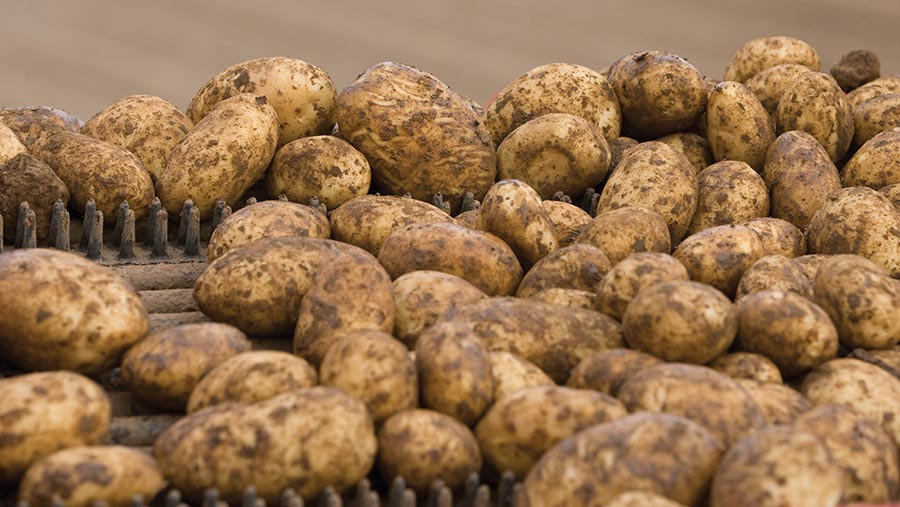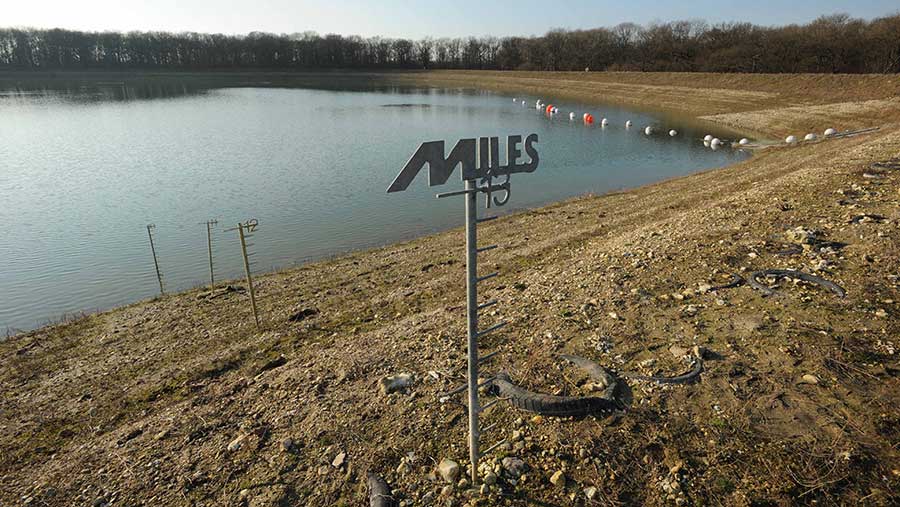Farmers warn of potato and veg shortages later this year
 © Tim Scrivener
© Tim Scrivener Farmers are warning the food shortage crisis will get worse later in the year, due to the prolonged dry spell and a shrinkage of irrigated crop production.
A combination of a lack of rainfall over the past eight months, rising input and energy costs and stagnant supermarket prices is forcing growers to cut back on crop production.
Many farmers in East Anglia, which grows a significant proportion of the nation’s fruit and vegetable crops, potatoes and sugar beet, are cutting production this growing season.
See also: More empty shelves expected with food system ‘at breaking point’
Andrew Blenkiron, estate director at the 4,400ha Euston Estate, near Thetford, Norfolk, has reduced his area of potatoes, carrots, parsnips and onions from 465ha last summer to 344ha this season.
“Our crop production will be 25% down this year. We are picking our fields very carefully and not planting up headlands or areas that are less productive,” said Mr Blenkiron.
“The neighbouring Elveden Estate and many others are also cutting back production. If that is mirrored across the East, which it could well be, next winter there will be potential supply issues into the retailers.”
Retailers who are reliant on these home-grown crops will be forced to buy in more imports of food, which is often produced to lower standards than British, he added.
Crop acreage down
Mr Blenkiron decided to reduce his irrigated crop area this season due to soaring energy costs and concerns about a possible drought and lack of water security.
A spike in the price of electricity since the war in Ukraine has seen the cost of filling and then using the water from the farm’s two reservoirs jump from £70,000-£80,000 to about £230,000/year.
The reservoirs have a capacity of 180m gallons of water and they are currently filled with 110m gallons.

Depleted reservoir at Euston Estate, Thetford, Norfolk © Andrew-Blenkiron
Furthermore, Mr Blenkiron said new supermarket pricing mechanisms are not reflective of the extra cost increases.
Will Jolly farms 283ha in south-west Norfolk, growing a variety of vegetable and arable crops. He has cut back his acreage by 25% this year mainly due to “aginflation” and prices not reflecting his costs.
“People are all growing a lot less and at some point that means food shortages and supermarkets importing more food,” he said. “I certainly don’t know of anybody who is growing more.”
